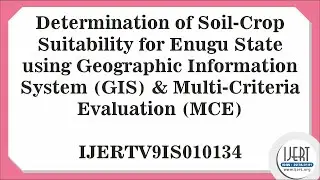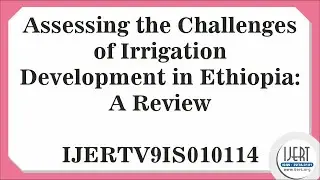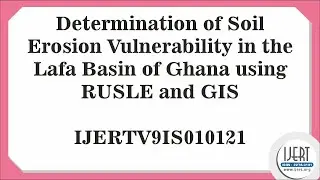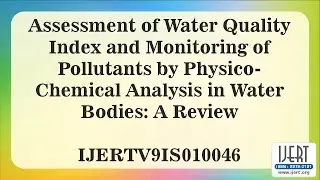Assessing the Challenges of Irrigation Development in Ethiopia: A Review
👇Download Article👇
https://www.ijert.org/assessing-the-c...
IJERTV9IS010114
Assessing the Challenges of Irrigation Development in Ethiopia: A Review
Mesfin Meja , Matusala Bassa , Teketel Mirkeno
This study reviewed to assess the challenges of irrigation development in Ethiopia based on use and development of irrigation water and its contributions to the national economy, opportunities, and future development perspectives. Although, Ethiopia is considered as a water tower of Africa, only 5% irrigation potential is developed yet. It is believed that irrigation can increase security of crop production and income earning. Concurrently, in many parts of the country; it uplifted the food security of many smallholder farmers. However, evidence has shown that there are several challenges on the performance of irrigation schemes and most are not performing at the best of their capacity. The key challenges impeding the success of irrigation development are; poor scheme management, imperfect market, financial shortage, insufficient technical skill, lack of awareness about the use of irrigation, environmental and, social impact and institutional challenges. Local resources and adequate catchment management; soil and water conservation using physical and biological measures is essential. Poor irrigation management is highly related to lack of sufficient skills. Thus, expansion of training for farmers and water user associations by governmental and nongovernmental organizations will have a significant impact on irrigation development. There is a strong need to improve access to market information to irrigators in other to improve the system in general and an effective extension system should be in place to guide farmers to manage traditional irrigation efficiently This paper argues that there is a need of attention by irrigation administrators, policy makers and development practitioners to tackle these challenges in order to develop irrigation potential and to solve food insecurity in Ethiopia.































